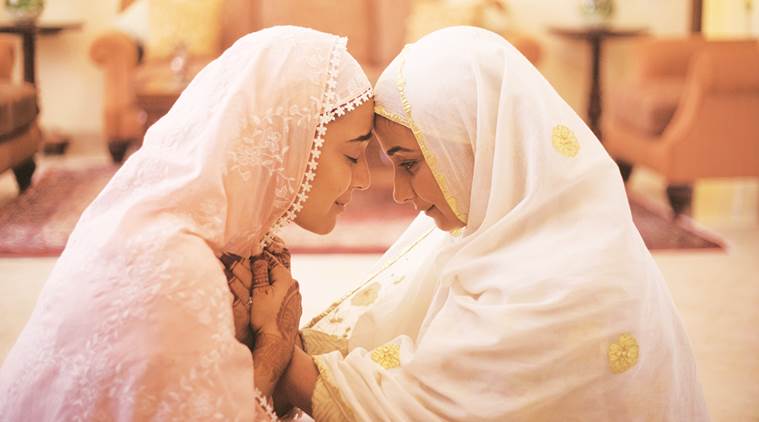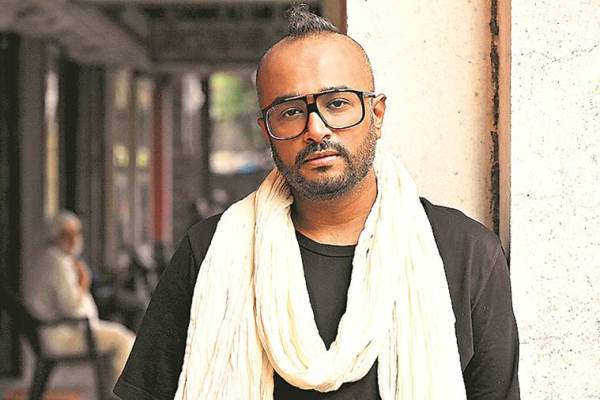 Swara Bhasker and Divya Dutta in a still from Sheer Qorma.
Swara Bhasker and Divya Dutta in a still from Sheer Qorma.
After entering 150 film festivals with India’s first silent LGBTQ film, Sisak, which bagged 59 awards, a first in Indian cinema, director and film writer Faraz Arif Ansari’s next film, Sheer Qorma, narrates how the world is full of hate and all it needs is a big embrace of love. Starring Shabana Azmi, Swara Bhasker and Divya Dutta, Sheer Qorma is a film about love and acceptance. A story told through a queer Muslim woman and non-binary people of colour, Sheer Qorma is predominantly a family film, but it is path breaking because one of the characters is Pakistani Canadian (Bhasker) while the other is Indian (Dutta). Interestingly, the film not only focuses on the relationship between two queer persons but also the sacred bond that is shared between a mother and her child. Azmi, who has been an active advocate for the LGBTQA+ community in real life, plays someone who has issues with her daughter’s identity and sexuality in the film. Sheer Qorma tries to open up a new spectrum of not just sexuality but also about nationality, womanhood, identity and family.
Ansari expressed that while he is unsure whether the film will change lives or hearts, it sure will open up a dialogue. He added that the film is not only targeting the LGBTQA+ community but is also for all the Indian parents, whether they have a queer child or not. “It is the first step towards change and progress. You have to talk about the elephant in the room. You cannot hide or ignore it as it is there, alive and breathing,” he said.
 Faraz Arif Ansari
Faraz Arif Ansari
Growing up in a Muslim household himself, Ansari said that he identifies himself as a non-binary individual and the story of Sheer Qorma is very close to home. He also expressed that to make a film on homosexuality in a family set up and at the same time allow it to be mainstream, to be about a Muslim family and also introduce the whole idea and conversation about nationality, identity and gender, is in itself very distinct. “It is a personal and intimate story and I have been living this since the day I was born. I just had to close my eyes and find a way to ‘bleed on paper’, and let it speak. Like my previous projects, Sheer Qorma is dedicated to my mother, and I make it for her so that she understands me better as she is my target audience in the film. I feel that in the mainstream spectrum of cinema there is so much we can do as there are so many new conversations that we can bring. I personally feel that mainstream can be feminine, queer and inclusive and we should redefine what mainstream also is,” said Ansari.
The title Sheer Qorma is a salute to the role that food plays in the film. It is a metaphor for love and conflict among others. “It is an Indian household thing, as no matter how upset we are at each other, we somehow manage to come around and eat a meal together. A lot of people think that Sheer Qorma is something that only Muslims relish. I do not think food items have any religion or clothes and languages have gender. Urdu is not a Muslim language and Muslim women also wear saris, and that is the point the film makes,” he said.
Ansari, since the inception of his career, has been trying to create a novel space in cinema where the LGBTQA+ community is given a real representation with a touch of sensitivity. In Sisak, he detailed a wordless love between two men set in the fast-paced environment of the bustling Mumbai local trains. His upcoming film titled Sabr, which is about a transgender woman, will also be molded into a family and mainstream set up. “The question is that are we doing justice to the community or more damage to it. In the film, I had to find the right representation of a non-binary person since I identify as one. It does not come by interviewing a queer person or watching five queer films back to back. It takes a long time to develop that understanding of the subject and not just the queer subject but any subject for that matter. One brings forward the representation either by extreme personal and intimate observation or it stems from your own experiences,” said Ansari.
In order to not only make his film inclusive in front of the camera but also behind it, the entire cast and crew of the film mostly comprised women. Ansari said that with so many women on the set, the atmosphere had a sense of intimacy and a sublime femininity. “The lead characters of my film are women and that in itself is a very important conversation other than what is happening in the film. With Shabana Azmi, Divya Dutta and Swara Bhasker, you are dealing with actors of very high calibre. To direct Shabana Azmi, so early in my career, is a blessing and I cannot wait for the world to see them portray the different and unusual roles that they play,” he said.
“Bacche galat seekh jaenge is something that is often said but how will they learn anything wrong about love? Sheer Qorma puts forward this point and if you will have the courage to accept this love,” he said.